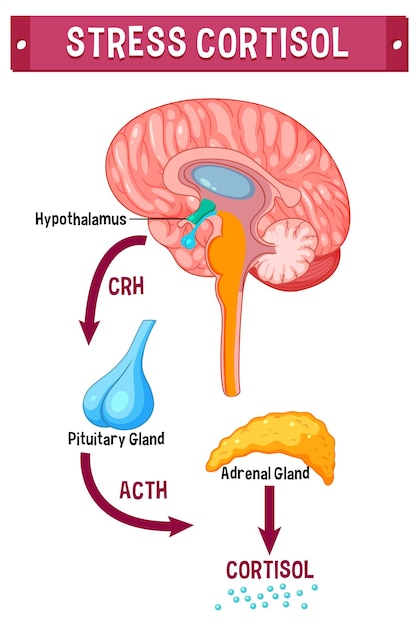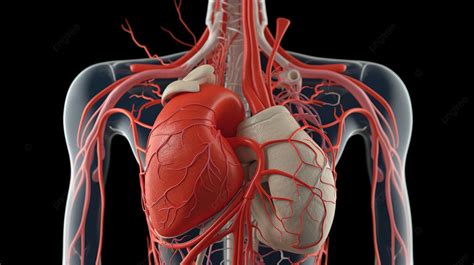Vitamin D has long been associated with bone density, immune balance, and calcium metabolism. Yet emerging research suggests its influence may extend much further—into the cellular mechanisms that govern how we age.
A newly published analysis from the VITAL trial, one of the most robust long-term randomized trials of nutrient supplementation to date, adds an important piece to the longevity conversation. The findings suggest that consistent Vitamin D₃ supplementation modestly but significantly preserved leukocyte telomere length over four years in older adults, compared with placebo.
This does not mean Vitamin D “stops aging.” But it does suggest that maintaining adequate Vitamin D status may help slow one measurable contributor to biological aging, particularly under conditions of metabolic and immune stress.
Telomeres: One Window Into Biological Aging
Telomeres are the protective caps at the ends of chromosomes. Each time a cell divides, telomeres shorten slightly. Over time, excessive shortening is associated with cellular senescence, impaired tissue repair, and increased disease vulnerability.
Telomere length is not destiny, nor is it the sole marker of aging. But it is a useful proxy for cumulative cellular stress—oxidative, inflammatory, immune, and metabolic.
In the VITAL sub-study, participants receiving Vitamin D₃ (2,000 IU/day) experienced significantly less telomere shortening than those receiving placebo. Omega-3 fatty acids, notably, did not show the same effect in this analysis.
The magnitude of benefit was described as modest but statistically significant, which is exactly what we expect from nutritional interventions that support physiology rather than override it.
Why Vitamin D May Matter in a Metabolic Chaos™ Context
From a functional and Metabolic Chaos™ lens, aging is not driven by a single “root cause,” but by interacting stressors that accumulate over time:
- Immune dysregulation
- Chronic low-grade inflammation
- Mitochondrial inefficiency
- Impaired DNA repair
- Circadian disruption
- Reduced hormonal signaling resilience
Vitamin D intersects with many of these systems simultaneously:
- Immune modulation (innate and adaptive balance)
- Inflammation signaling control
- Mitochondrial gene expression
- Genomic stability and DNA replication fidelity
- Calcium signaling beyond bone tissue
Rather than acting as an anti-aging “switch,” Vitamin D appears to function more like a system stabilizer—helping cells respond more appropriately to ongoing stress.
In other words, it may help reduce the rate at which Metabolic Chaos accumulates.
No Megadoses, No Biohacking Extremes
One of the most important aspects of the VITAL findings is what wasn’t used:
- No megadoses
- No aggressive protocols
- No pharmacologic intervention
Participants followed consistent, physiologic dosing over years—not weeks—and still demonstrated measurable benefit.
This reinforces a critical principle in functional and nutritional medicine:
Longevity support is often about consistency, sufficiency, and system support—not intensity.
Who Is Most Likely to Benefit?
Vitamin D insufficiency remains common, particularly in individuals who:
- Spend most of their time indoors
- Live at northern or southern latitudes
- Have darker skin pigmentation
- Experience chronic stress or immune activation
- Carry higher body fat percentages
In clinical and practitioner settings, Vitamin D status often correlates with immune load, inflammatory tone, and recovery capacity rather than symptoms alone.
This is why testing—not guessing—is essential.
Practical Considerations (General Education Only)
- Always assess serum 25-hydroxyvitamin D levels before long-term supplementation
- Many adults fall into a maintenance range with 2,000–4,000 IU/day, though individual needs vary
- Vitamin D works synergistically with Vitamin K₂, magnesium, and adequate dietary fat
- Sun exposure, lifestyle stress, sleep, and gut absorption all influence outcomes
Vitamin D should be viewed as one contributor within a broader systems strategy, not a stand-alone solution.
Aging Is Not Just About Time
Chronological aging is inevitable. Biological aging is variable.
Cellular resilience, repair capacity, and immune balance determine how well we adapt to stress over time. Vitamin D appears to support these processes quietly, incrementally, and safely when used appropriately.
Not a miracle.
Not a cure.
But potentially a meaningful support lever for long-term cellular health.
Scientific Reference
Zhu H, et al. Vitamin D₃ supplementation, but not omega-3 fatty acids, preserves leukocyte telomere length over 4 years in older adults: results from the VITamin D and OmegA-3 TriaL (VITAL). The American Journal of Clinical Nutrition. 2025;121(6):1720-1731.
Findings demonstrate modest but statistically significant benefits and warrant further replication.
Work With Me
I work with clinics, practitioners, and health-focused companies to design evidence-aligned nutritional supplement and functional drink formulations, and to help individuals understand how multiple physiological contributors interact over time.
Formulation consulting: HealthspanFormulations.com
Clinical & educational support: OptimumHealthConsulting.com
#VitaminD #LongevityScience #CellularHealth #MetabolicChaos #FunctionalNutrition #NutraceuticalInnovation #HealthyAging #ProductFormulation #RobLamberton #RobertLamberton



 Compounding formulation (sterile & non-sterile)
Compounding formulation (sterile & non-sterile) Development of a 46-SKU botanical precision-medicine range
Development of a 46-SKU botanical precision-medicine range Operational systems & quality assurance integration
Operational systems & quality assurance integration Practitioner education programs in functional nutrition, integrative medicine, and metabolic assessment
Practitioner education programs in functional nutrition, integrative medicine, and metabolic assessment Clinical translation of regenerative and longevity protocols
Clinical translation of regenerative and longevity protocols

